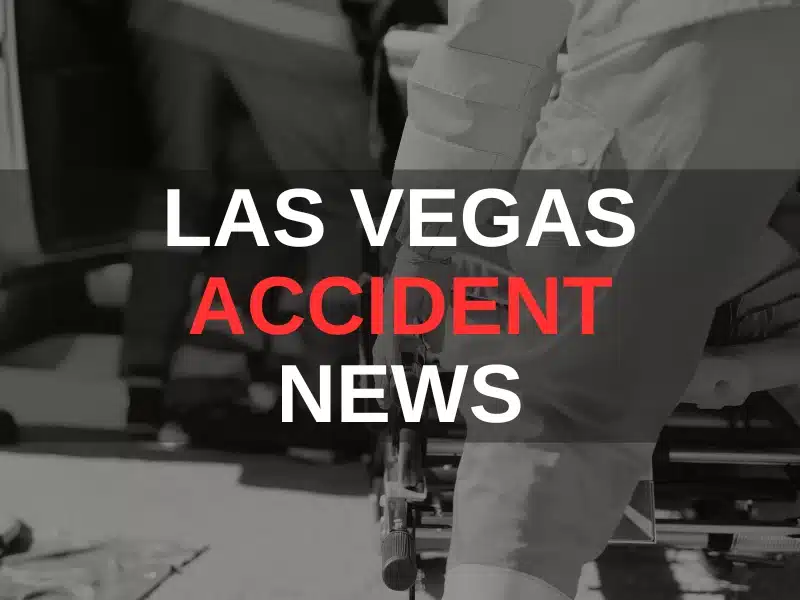Las Vegas, NV (May 27th, 2025) – Workers are facing a high risk of suffering heat-related illnesses as temperatures climb in Las Vegas. Following a significant boost in temperatures, and with a ridge of high pressure set to sweep the region, the National Weather Service has issued an Extreme Heat Watch for the area. Meteorologists are projecting temps will reach the low triple digits, with less sustained winds to help keep Nevadans cool while outdoors.
As summer hits Las Vegas, temperatures soar into the triple digits. This extreme heat creates serious health risks for workers across many industries. From construction and landscaping to kitchen and warehouse work, employees face dangerous conditions that can lead to heat-related illnesses.
What Are Heat-Related Illnesses?
Heat-related illnesses happen when your body struggles to keep its core temperature within a safe range while exposed to high heat and physical activity. These conditions vary in severity, from mild discomfort to life-threatening emergencies. Understanding the symptoms and risks of each is key to protecting yourself on the job.
Heat Rash
Heat rash, also called prickly heat, occurs when sweat ducts become blocked and sweat gets trapped under the skin. It often appears as red bumps or small blisters on areas where sweat collects, like the neck, chest, or groin.
While heat rash is usually not serious, it can cause itching and discomfort. If untreated, scratching may lead to infection, which complicates recovery.
Heat Cramps
Heat cramps are painful, involuntary muscle spasms that commonly affect the legs, arms, or abdomen. They occur when the body loses salt and minerals through heavy sweating but doesn’t replace them adequately.
Workers who perform strenuous physical labor in hot conditions are especially prone to heat cramps. The cramps can be sudden and intense, temporarily disabling a worker and signaling that more serious heat illness may follow if not addressed.
Heat Exhaustion
Heat exhaustion is a more severe condition resulting from prolonged heat exposure and dehydration. Common symptoms include heavy sweating, weakness, headache, nausea, dizziness, and fainting.
If untreated, heat exhaustion can quickly progress to heat stroke. It requires immediate action: moving to a cooler place, hydrating, and resting. Without prompt care, workers risk collapse and severe complications.
Heat Stroke
Heat stroke is the most severe form of heat-related illness and demands urgent medical attention. It occurs when the body’s core temperature rises above 104°F and the natural cooling mechanisms fail.
Symptoms of heat stroke include confusion, rapid heartbeat, lack of sweating despite the heat, seizures, loss of consciousness, and sometimes coma. Without quick treatment, heat stroke can cause permanent organ damage or death.
Because heat stroke can develop suddenly, workers and supervisors must be trained to recognize early warning signs and act immediately.
Which Workers Are Most Vulnerable?
Some jobs in Las Vegas come with a significantly higher risk of heat-related illnesses due to prolonged exposure to extreme temperatures and physically demanding tasks. The most common of these include:
Construction Workers
Construction workers spend long hours outdoors performing physically demanding tasks like lifting, digging, and operating heavy machinery. Their continuous exposure to direct sunlight and heat puts them at high risk of heat-related illnesses.
Landscapers and Groundskeepers
Landscapers and groundskeepers work outside throughout the day, often without adequate access to shade or cooling areas. The physical nature of their job combined with intense heat increases their vulnerability.
Warehouse and Factory Workers
Indoor workers in warehouses and factories face heat risks when ventilation is poor or air conditioning is absent. These heat-trapping environments can quickly lead to dehydration and overheating despite being indoors.
Kitchen Staff
Workers in commercial kitchens are exposed to high temperatures from ovens, stoves, and other appliances. Limited airflow and confined spaces make heat-related illnesses a serious threat in these settings.
Delivery Drivers
Delivery drivers and couriers face fluctuating temperatures as they move in and out of hot vehicles and outdoor environments. This constant heat stress raises their risk of heat-related health problems.
New or Returning Workers
Workers new to a job or returning after time off have not yet adapted to the heat exposure. Without gradual acclimatization, they are more prone to heat illness, especially during the hottest months.
Workers Wearing Protective Gear
Employees required to wear heavy uniforms or protective equipment face added challenges. Such gear traps heat and reduces the body’s ability to cool down naturally, increasing the chance of overheating.
Workers’ Compensation Covers Heat-Related Conditions
Nevada workers’ compensation laws recognize heat-related illnesses as workplace injuries when they arise from job duties or conditions. Therefore, if you develop heat exhaustion, heat stroke, dehydration, or other heat-induced health problems due to your work environment or activities, you may be entitled to benefits.
Heat-related injuries qualify because they are directly linked to the hazards of your employment. Whether you work outdoors under extreme sun or in a hot, poorly ventilated warehouse, your illness can be considered compensable if your employer failed to provide a safe workplace or adequate protections.
To successfully claim workers’ compensation for a heat-related condition, you must prove the injury was caused or aggravated by your job. Such proof may require:
- Medical documentation diagnosing the heat illness and linking it to work conditions
- Records of when and where the injury occurred, such as incident reports or witness statements
- Evidence showing exposure to extreme heat or lack of protective measures at work
Benefits you could receive include coverage for medical treatment, temporary disability payments if you miss work, and permanent disability compensation if your condition results in lasting impairment.
Because heat-related injuries can worsen over time if untreated, early reporting and treatment improve the chances of a successful claim.
Challenges When Filing a Heat-Related Workers’ Compensation Claim
Despite legal protections, workers often face difficulties when filing heat-related claims. One common challenge is proving that the illness was caused by workplace conditions rather than a preexisting health issue or outside activity. Heat-related symptoms like fatigue or dizziness can overlap with other medical problems, making the link less obvious.
Employers or insurance companies may dispute claims by arguing that the worker did not report symptoms promptly or that adequate safety measures were in place. Delays in reporting can weaken your case, as it becomes harder to establish a clear connection between work conditions and illness.
Another barrier is fear of retaliation. Some workers hesitate to report heat-related symptoms out of concern they might lose hours, face disciplinary actions, or even be fired. This fear can prevent timely claims, risking more severe injury.
Insufficient documentation also complicates claims. Without medical records explicitly linking symptoms to heat exposure on the job, insurers may deny benefits. Witness accounts, heat exposure logs, and incident reports are valuable in supporting your case.
Finally, misunderstandings about how workers’ compensation works can cause claimants to give up prematurely or accept unfair settlements. Working with a knowledgeable workers’ compensation attorney can help navigate these challenges, ensure your rights are protected, and maximize your chances of receiving full compensation.
Talk to a Las Vegas Workers’ Compensation Lawyer Who Knows Heat-Related Claims
If you’ve suffered a heat-related illness while working in Las Vegas, you don’t have to navigate the claims process alone. The heat can take a serious toll, and getting the compensation you’re owed shouldn’t add to the stress.
At George Bochanis Injury Law Offices, we’ve spent more than 30 years helping injured workers across Nevada get the benefits they need to recover and move forward. We understand how heat-related claims are evaluated, where employers and insurers try to shift blame, and what evidence makes the difference. Call us today at 702-388-2005 to discuss your options.




